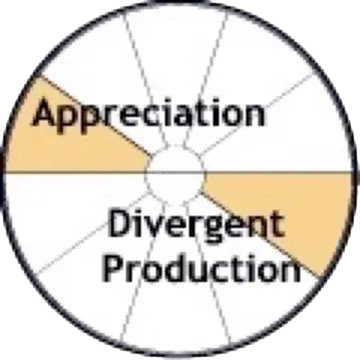Find Out
More About
The TIEL Wheel

Find Out More About TIEL
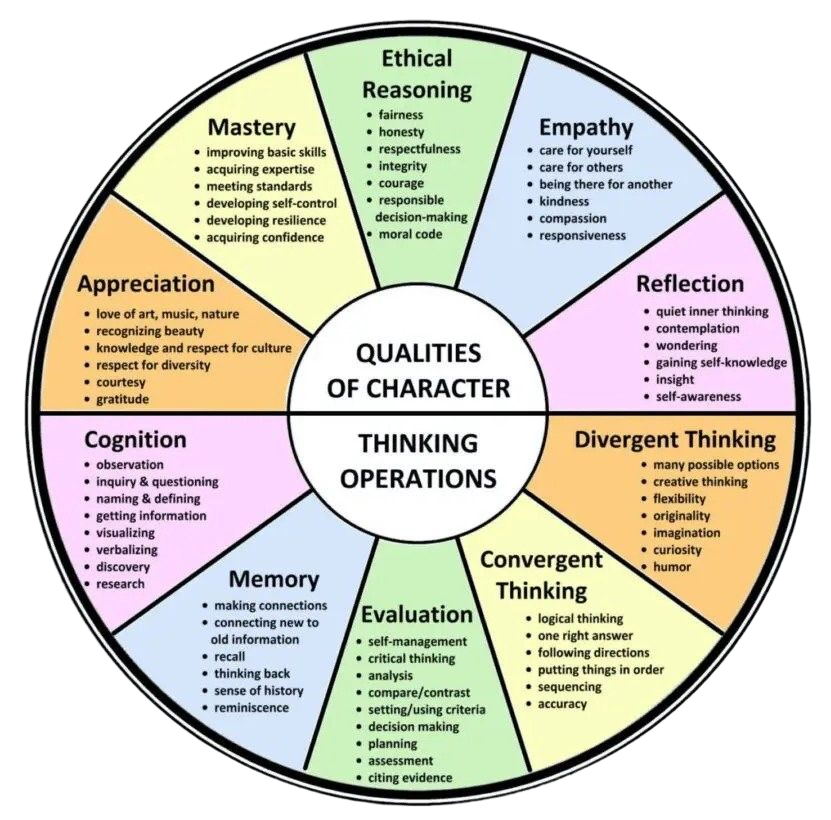
What is the TIEL Curriculum Design Wheel?
Just as GPS provides direction to drivers, the TIEL Curriculum Design Wheel is a map that makes intellectual skills and social-emotional characteristics visible to educators, students, and parents. The TIEL Wheel enhances teacher planning, helps students understand their learning, and expands possibilities for parents.
The lower half of the TIEL Wheel focuses on the intellectual components of learning and teaching, while the upper half focuses on social-emotional characteristics. Color coding highlights the relationships between each thinking operation and its corresponding quality of character.
While some seek to limit curriculum and resources in education, Teaching for Intellectual and Emotional Learning (TIEL) opens new possibilities for planning deeper and more balanced learning experiences for students.
Cognition and Reflection
How do students learn? The intellectual component of Cognition and the social emotional characteristic of Reflection are related through their roles in acquiring and processing information. Cognition is the thinking operation through which information and experiences are acquired. These skills include observation, listening, discovery, awareness, comprehension, understanding, and various kinds of research. Reflection is the space in which information is connected and organized leading to deeper self-knowledge. What insight have I gained? What have I learned about myself?

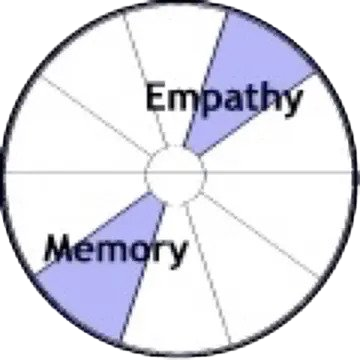
Memory and Empathy
How would you feel if…? How did you feel? Memory and Empathy are related through the connection between one’s personal experiences and the feelings one has for others. Memory is more than recall. Memory facilitates making connections between old and new information and stores social-emotional information that influences one’s capacity for Empathy. It is through remembering experiences of caring, either directly or vicariously, that we learn to be caring individuals.
Ethical Reasoning and Evaluation
Life consists of decisions, plans, and projects, so it is fitting that Evaluation and Ethical Reasoning form the central core of the TIEL Wheel. They are related through the skills they have in common. Both Evaluation and Ethical Reasoning involve the self-regulatory skills of planning, decision-making, and self-evaluation, skills best taught through project work. Ethical Reasoning occurs when empathy, honesty, appreciation, and respect for others are included in the processes of decision-making and planning. These components are the most challenging to teach and learn!
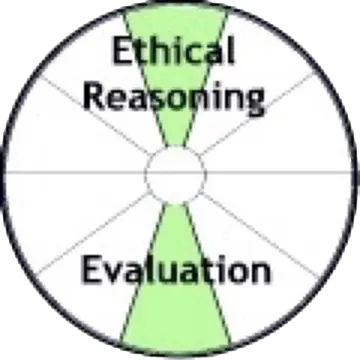
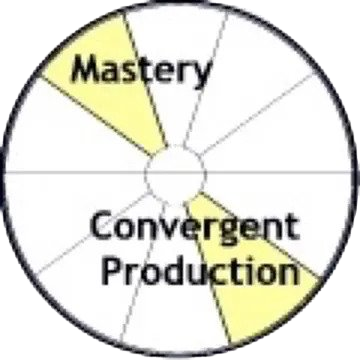
Convergent Thinking and Mastery
Life is filled with instructions, deadlines, problem-solving and necessary facts, all important to master. Convergent Thinking is related to Mastery through the kinds of expectations involved. In school, Convergent Thinking and Mastery are both associated with having one right answer and meeting expectations and standards most often set by others. This type of thinking is at the center of instruction in most schools. Students who fail to master established expectations can experience negative effects on their social-emotional well-being and capacity to learn. Students whose abilities to learn require more challenging instruction can experience similar feelings of discouragement, frustration, and hopelessness in the classroom. Education in the 21st century must go beyond this. Effective teaching and learning require a wide range of thinking opportunities!
Divergent Thinking and Appreciation
How does Divergent thinking relate to Appreciation? The ability to think divergently increases one’s capacity for appreciation. Divergent Thinking includes creative thinking, fluency, flexibility, originality, and imagination, all found in the arts and in nature. Considering many options is important in problem-solving. Open-minded thinking fosters Appreciation of the different experiences of others. Like the skills found in the Evaluation and Ethical Reasoning components, students best learn Divergent Thinking skills and Appreciation through creative, active, student-managed project work. When students apply and are aware of Evaluation and Divergent thinking, they gain powerful leadership skills.
